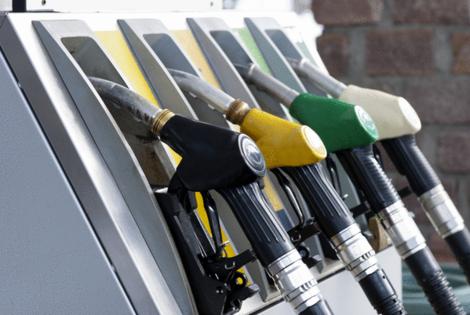Will Trump's proposed tariffs cause gas prices to go up in California? What experts say
Published in News & Features
The price of gasoline in California should remain stable if President-elect Donald Trump imposes stiff tariffs on Canada and Mexico, experts say.
“The direct impact might be fairly small,” said Gary Hufbauer, senior fellow at the nonpartisan Peterson Institute for International Economics.
Gasoline prices in California are still expected to remain the nation’s highest, but not because of higher tariffs.
A gallon of regular gasoline averaged $4.34 on Tuesday, according to AAA. The national average was $3.04.
California’s average price could drop even lower, said Patrick De Haan, head of petroleum analysis at GasBuddy, which tracks prices.
Trump takes office January 20, and has threatened to quickly hit products from Canada and Mexico with 25% tariffs unless they take decisive action to curb migration and drugs. Economists and political leaders are warning that such tariffs could send consumer prices in this country soaring.
Gov. Gavin Newsom has warned “there’s no state that will be impacted more” by tariffs on Mexico. Economists regardless of ideology tend to agree that consumer prices could jump.
The UCLA Anderson winter forecast found “uncertainty with respect to the current forecast is elevated,” thanks to pending Trump policies on tariffs as well as immigration, taxes and regulation.
Kimberly Clausing and Mary Lovely, senior fellows at the Peterson Institute, reported in a policy brief earlier this year that the Trump actions should cost a middle income household about $1,700 in higher taxes each year. It predicted “massive collateral damage” to the U.S. economy
But not because of gasoline prices in California.
“With a higher tariff, the import costs would rise and so would the price of gasoline, but not that much,” said Sung Won Sohn, president of Los Angeles-based SS Economics.
California refineries got about 60% of their oil supply from foreign sources last year, but not much from Canada or Mexico.
About 4% of crude oil imports to California last year came from Canada and another 4% was from Mexico. The state got 21% of its crude oil from Iraq, followed by Saudi Arabia, Brazil and Ecuador, each between 14% and 16%.
Trump has argued that tariffs will not trigger big price increases.
“President Trump successfully imposed tariffs on China in his first term AND cut taxes for hard-working Americans here at home – and he will do it again in his second term,” said Karoline Leavitt, Trump’s spokeswoman, during the presidential campaign.
Gas prices stay higher
California’s gasoline prices are nonetheless expected to remain higher than in other states for a variety of reasons.
State and local taxes on gasoline are high. California’s refineries produce a cleaner product to meet state environmental regulations. The state lacks the sort of interstate pipeline network that can compensate for refinery shutdowns.
There is one tariff-related threat that could spike gasoline prices — the ripple effect from other sources.
“Trump’s tariffs would definitely cause retaliation, ultimately affecting the price of gasoline through direct and indirect effects everywhere including California,” said Gokce Soydemir, a professor of business economics at California State University, Stanislaus.
The direct effect, he said, would be having to “extract higher priced gasoline from marginal oil wells and indirect effect would result from higher prices of goods and services from higher transportation costs.”
Severin Borenstein, an energy economist at University of California, Berkeley, also saw a risk to gasoline price stability.
“If it were just tariffs on Canada and Mexico, I think it would lead to a reallocation of shipments into California from other countries,” he said.
“But I think it is unlikely it would be just Canada and Mexico. If the tariffs were on all imported oil, then I think it would pretty much translate one for one to gasoline prices.”
His hope was that the oil industry is lobbying hard against the tariffs.
“I think they are likely to make a convincing case that tariffs on imported oil are a bad idea,” Borenstein said. “But you never know.”
_____
©2024 The Sacramento Bee. Visit sacbee.com. Distributed by Tribune Content Agency, LLC.







Comments